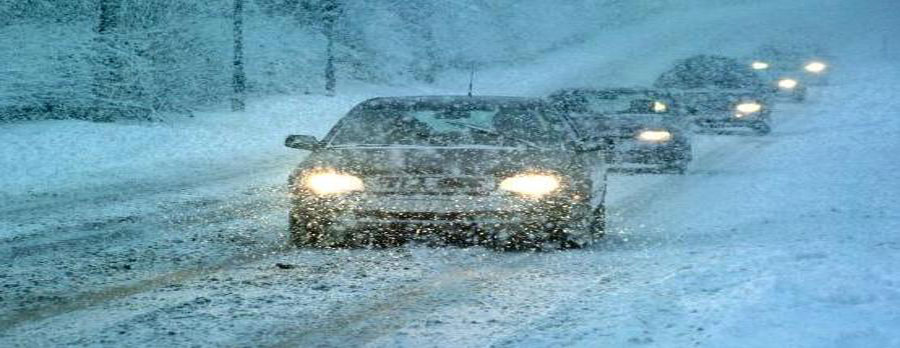Being prepared for adverse weather
and bad road conditions.
Driving in the winter is very different than in other times of the year. Adverse weather and longer periods of darkness (especially after the clocks go back) makes driving more hazardous. Sometimes conditions can be extreme, with prolonged periods of heavy snow and floods.
Different weather conditions create different hazards throughout the winter. A single journey may take us into very different weather, road and traffic conditions, so we need to be prepared for each one. This means that we need to adapt the way we drive to the conditions.
Most of us have very little experience of driving in extreme conditions, such as snow, so take some time to consider how it affects your driving. Don’t just drive as normal.
Unfortunately, driving in such circumstances can cause accidents to happen.
Should you find yourself in a Road Traffic Accident its important to remember these keys things at the scene of the incident when considering a claim for personal injury that may be made in the future.
If you are unfortunate enough to be involved in a Road Traffic Accident but suffer only minor injuries, try and remain calm and remember these tips to help deal with the incident.
- Stop! However minor you think a car accident is, you must stop. In fact, failing to do so is an offence under the Road Traffic Act. You should make sure your car’s engine is switched off and then turn your hazard lights on to alert other road users to your presence.
- Call 999 or 101
- Take a look around. If anyone has been injured in the car accident you should call the police (and an ambulance if necessary) as soon as possible.
- You should stop and give your details if you crash into something on or near the road even if there aren’t any other people involved.
- Avoid saying sorry or accepting blame for the accident until you know precisely what happened as it could count against you later on.
- Car accidents should also be reported to the police within 24 hours. Failure to do so could result in a fine, penalty points or even disqualification.
- Collecting details after a car accident If possible, you should collect names, addresses and contact details from any drivers, passengers and witnesses. Ask the other drivers involved for their car insurance details and try to establish whether they are the registered keeper of their vehicle. If they aren’t, find out who is and make a note of their name and address.
- Here are some other important details you should try to collect at the scene of the car accident: The registration numbers of all vehicles involved, plus a note of each vehicle’s colour, make and model. The time and date of the crash. A sketch showing the positions of the vehicles involved. A description of the weather conditions, plus anything unusual you notice about the road quality or lighting. A list of damage to vehicles and a description of any injuries sustained by pedestrians, drivers and passengers. You may find it useful to take photos of the car accident for use as evidence.
This can seem like an awful lot of information to remember at what could be a very stressful time, but it could really help your case if you are injured and it wasn’t your fault.
At Treadstone Law we hope that you all keep safe in the upcoming bad weather. Contact us for confidential and professional advice.
Call Treadstone Law on 0161 685 0070
[/vc_column_text][vc_empty_space][vc_empty_space]Error: Contact form not found.
[/vc_column][/vc_row]

